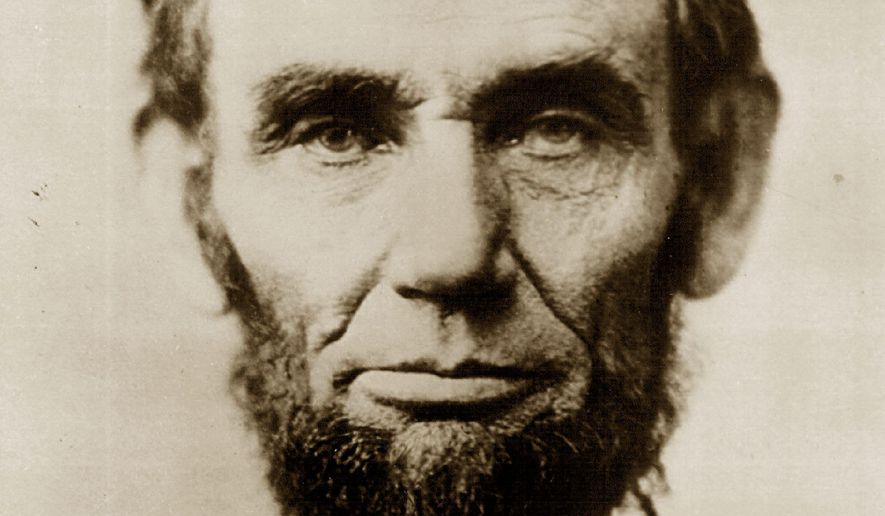OPINION:
Amid a potentially nation-annihilating war that threatened to tear America to shreds, President Abraham Lincoln faced a truly excruciating catastrophe. And while he could have buckled under the seemingly insuperable weight of uncertainty or allowed the fiery coals of rage to consume him, America’s 16th president chose another path: thanksgiving.
Just months after the July 1863 Battle of Gettysburg — a scourge that left 50,000 Americans slaughtered in the heat of the Civil War — Lincoln issued a historic Thanksgiving Proclamation. That reflective call to gratitude has widely been seen as the baseline for the modern Thanksgiving holiday.
We’re no longer embroiled in a deadly military conflict that threatens to split our nation in two, but 160 years after Lincoln’s proclamation, we do face some notable battles.
Our social, cultural and political landscapes are no doubt in tatters. Many now lament the fierce division that has some critics warning the U.S. is devolving into a patchwork of two disparate countries — one red and one blue — with the divided states struggling to find any semblance of unity.
Hatred and rage have become the flavor of the day, infecting everything from our national discourse to our family gatherings. Yet Lincoln’s words, especially during this holiday season, offer timeless lessons we should reflect on and heed.
If the president facing the biggest crisis in U.S. history was able to come to a place of such profound gratitude and solace amid such death and destruction, surely we, too, can heal, find common ground and show mercy to those around us.
The first lesson Lincoln’s proclamation teaches us is that, regardless of what happens, God loves us and has a plan for our lives. Even when it feels like all hope is lost and there’s no path forward, the Almighty can and will make a way.
“The year that is drawing toward its close has been filled with the blessings of fruitful fields and healthful skies,” Lincoln wrote. “To these bounties, which are so constantly enjoyed that we are prone to forget the source from which they come, others have been added, which are of so extraordinary a nature that they cannot fail to penetrate and even soften the heart which is habitually insensible to the ever-watchful providence of Almighty God.”
It’s remarkable to observe how Lincoln was able to see through the fog of war to remember the blessings of God’s creation and love. Rather than forsaking or ignoring these sentiments, he embraced them, pressing Americans to think deeper and praise higher at a time of such great personal and national suffering.
Another lesson heralded in Lincoln’s historic proclamation is to be thankful in any and all circumstances. This mantra, which can certainly be difficult to live out when finances are dwindling, sickness is raging, politics is percolating, or other life circumstances are battering us, is derived from the Apostle Paul in 1 Thessalonians 5:16-18.
The verse (NIV) reads, “Rejoice always, pray continually, give thanks in all circumstances; for this is God’s will for you in Christ Jesus.” It’s a remarkable call and an especially pertinent one.
And it takes on even more meaning considering Lincoln’s fight to keep America from total implosion. Despite that difficult and certainly lonely battle, he saw the importance of expressing thankfulness and encouraging fellow citizens to come together around their blessings even in the most precarious of moments.
“I recommend to them that, while offering up the ascriptions justly due to Him for such singular deliverances and blessings, they do also, with humble penitence for our national perverseness and disobedience, commend to His tender care all those who have become widows, orphans, mourners, or sufferers in the lamentable civil strife in which we are unavoidably engaged,” Lincoln said. “And fervently implore the interposition of the Almighty hand to heal the wounds of the nation, and to restore it, as soon as may be consistent with the Divine purposes, to the full enjoyment of peace, harmony, tranquility, and union.”
Finally, Lincoln reminds us that God loves doling out mercy. Even as slavery ripped America apart at her seams and the future felt anything but bright, he was still able and willing to reflect on the positives: natural resources, population growth and freedom in many quarters.
And rather than coming at the toil of human hands, Lincoln recognized the eternal source of these elements.
“No human counsel hath devised, nor hath any mortal hand worked out these great things,” the president wrote. “They are the gracious gifts of the Most High God, who while dealing with us in anger for our sins, hath nevertheless remembered mercy.”
This is a reminder that, no matter how far we fall, how deep our depths of error, God is still willing to show his love and mercy. In turn, as we head to our family dinner tables this holiday season we, too, must show kindness and grace, even when difficult conversations take form or difficult personalities choose to break bread with us.
If we’re called to pray and give thanks in all circumstances, surely we can also love in the same way, looking to thanksgiving and gratitude regardless of what we face.
• Billy Hallowell is a digital TV host and interviewer for Faithwire and CBN News and the co-host of CBN’s “Quick Start Podcast.” Hallowell is the author of four books.




Please read our comment policy before commenting.